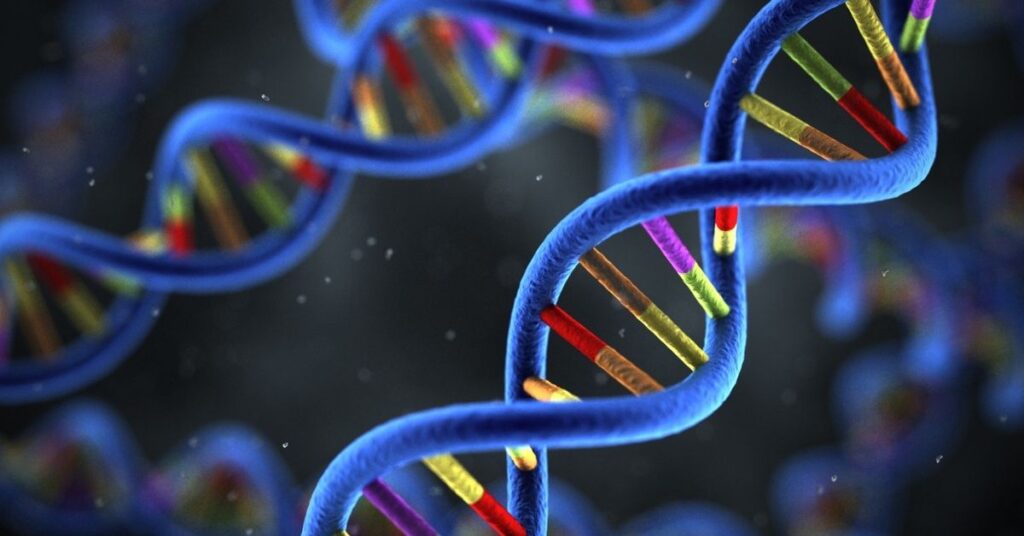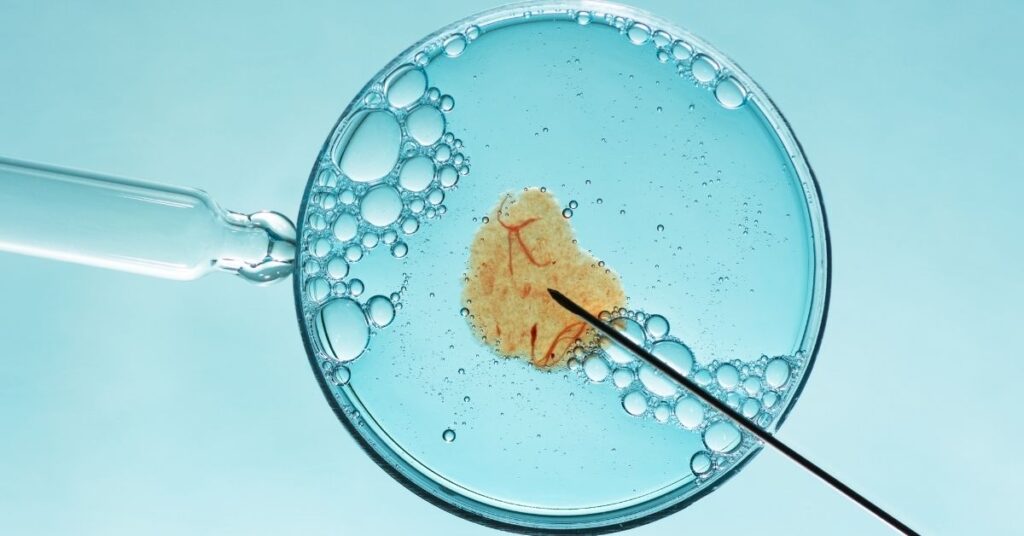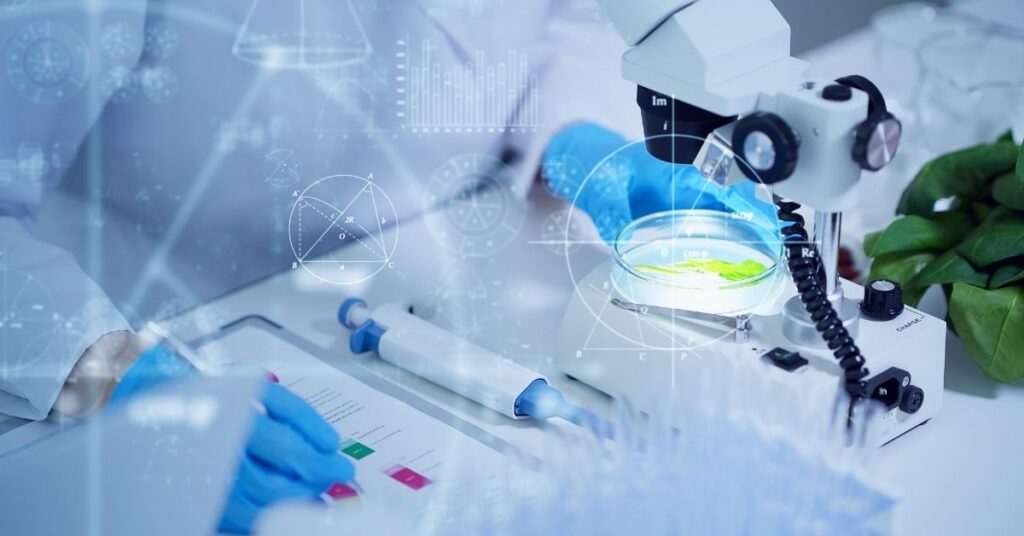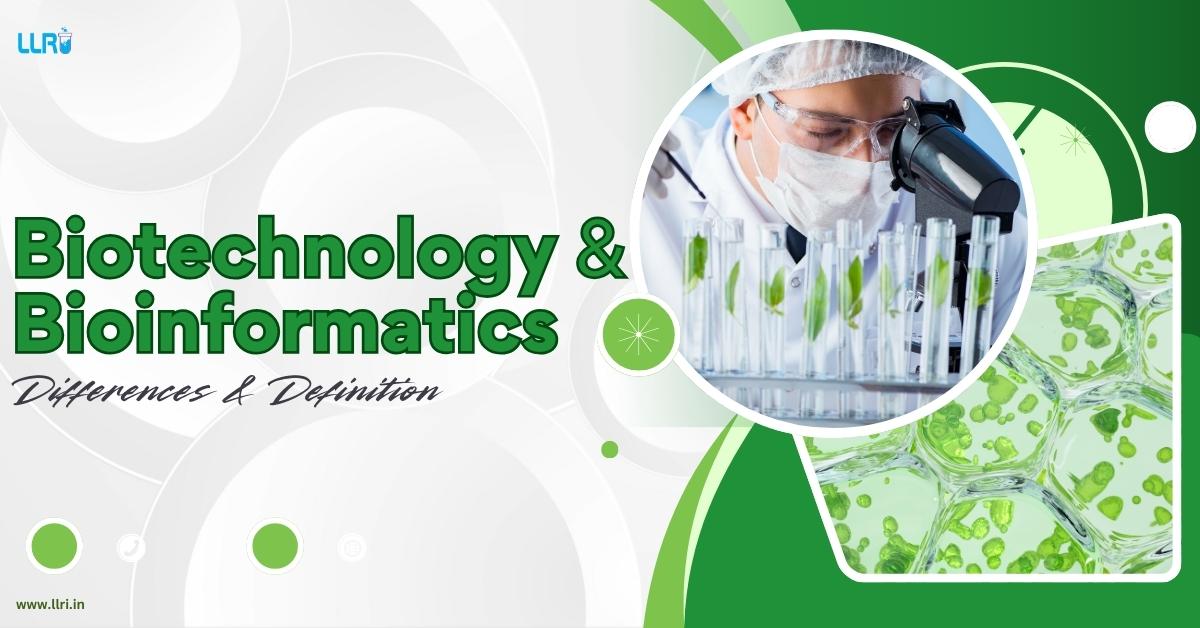Difference Between Biotechnology And Bioinformatics: The fields of biotechnology and bioinformatics are gaining significant attention, especially in sectors like healthcare, pharmaceuticals, and environmental sustainability.
While both fields overlap in some areas, it is important to understand that they are fundamentally distinct, each with its unique focus, techniques, and applications. So, if you are considering a career in any of these fields, it is no surprise that you should be aware of what sets biotechnology apart from bioinformatics? Let’s learn all about it.
All About Biotechnology and Bioinformatics!
What is Biotechnology Definition? Biotechnology is the use of biological systems, organisms, or derivatives to create or develop products for specific uses. It’s a broad field encompassing everything from genetic engineering and agricultural innovation to environmental sustainability.
This field plays a significant role in healthcare, where it contributes to the development of life-saving drugs, vaccines, and therapeutic techniques.
For example: Developing vaccines, GM crops, or biofuels.

What is Bioinformatics Definition? On the other hand, bioinformatics is the application of computer science, data analysis, and statistical techniques to interpret biological data. It mainly focuses on understanding complex biological data, such as genetic sequences, protein structures, and molecular dynamics, using computational tools.
Bioinformatics has transformed the way researchers approach genomics, drug discovery, and personalized medicine.
For example: Mapping genomes, studying protein structures, or drug discovery.
Difference Between Biotechnology And Bioinformatics: What You Should Know
| Features | Biotechnology | Bioinformatics |
| Nature of Work | Lab-based, experimental work. | Computer-based, theoretical analysis. |
| Techniques Used | Genetic engineering, fermentation, PCR. | Data mining, sequence alignment, software tools. |
| Applications | Drug production, agriculture, clean energy. | Genomics, proteomics, personalized medicine. |
| Skill Sets Required | Biology, chemistry, lab techniques. | Programming, data analysis, statistics. |
Here’s some information on the difference between biotechnology and bioinformatics for your better understanding:
Focus and Approach
Biotechnology revolves around hands-on manipulation of biological materials. The focus is on applying biological organisms or systems to solve real-world problems. Whether it’s creating genetically modified crops or manufacturing vaccines, biotechnology is all about tangible products that address societal needs.
On the other hand, bioinformatics is more theoretical and computational in nature. It focuses on processing and analyzing large sets of biological data to uncover new insights. Bioinformatics professionals build software and algorithms that help in understanding the complex relationships between genes, proteins, and diseases.
The difference between biotechnology and bioinformatics lies in the approach: biotechnology applies biological knowledge to create products, while bioinformatics uses computational tools to analyze data and derive insights.
Applications and Scope
Biotechnology has a wide scope, from agriculture to healthcare and environmental science. It encompasses disciplines like genetic engineering, molecular biology, fermentation technology, and more. Professionals in this field work with living organisms or cells to develop new drugs, vaccines, agricultural products, and even clean energy solutions.
Bioinformatics, however, is more focused on using software and algorithms to decipher biological data, often in the context of genomics, proteomics, and systems biology. It aids in understanding how genes and proteins function in living organisms, thus contributing to the development of personalized medicine and diagnostic tools.
The difference between biotechnology and bioinformatics is evident in the sectors they impact. Biotechnology contributes directly to product development, while bioinformatics drives research and data interpretation.
Techniques and Tools Used
In biotechnology, the techniques can range from PCR (Polymerase Chain Reaction) to genetic modification, cell culture, and fermentation. Biotechnology often involves working in labs with living cells or microorganisms, manipulating their genetic material for a desired outcome.
Bioinformatics, in contrast, heavily relies on computer software, databases, and algorithms. Key tools used include bioinformatics software like BLAST (Basic Local Alignment Search Tool), Genome browsers, and structural modeling tools. These tools help bioinformaticians analyze biological sequences, structure-function relationships, and evolutionary patterns.

What about the Career Paths in Biotechnology and Bioinformatics?
Wondering where these fields could take you? Let’s explore the potential career paths.
Biotechnology Careers:
Biotechnology professionals can pursue careers as biotechnologists, molecular biologists, agricultural scientists, or biomedical engineers. These roles involve hands-on work in laboratories, developing new biotechnological products or solutions.
Bioinformatics Careers:
Bioinformatics offers careers in fields like data science, computational biology, bioinformatics analysis, and systems biology. Professionals in bioinformatics often work in research institutions, pharmaceutical companies, or healthcare sectors, analyzing genetic data, building predictive models, and aiding in drug discovery.
5 Must-Know Facts About Biotechnology and Bioinformatics
Here are five key insights to understand how these fields compare and complement each other:
1. Hands-on vs computational work
Biotechnology involves hands-on lab work with living organisms. In contrast, bioinformatics is about creating algorithms and software to analyze biological data.
2. Applications in healthcare
Biotechnology develops vaccines, while bioinformatics analyzes the genetic sequences used in vaccine research.
3. Career opportunities
Both fields offer exciting careers, but the skills required differ. Biotechnology jobs are lab-intensive, while bioinformatics roles are computer-based.
4. Interdependency
While distinct, biotechnology and bioinformatics often work together. For instance, in drug discovery, bioinformatics analyzes genetic targets, and biotechnology develops the drugs.
5. Growing demand
With advancements like CRISPR and AI-driven genomics, both fields are crucial for addressing global challenges in health, agriculture, and the environment.

On A Final Note…
LLRI is considered one of the best institutes for PG Diploma in Clinical Research in India. Our Clinical Research training offers hands-on experience and industry insights, preparing you for a rewarding career in the healthcare sector.
Whether you’re looking to explore the difference between biotechnology and bioinformatics or aiming to get a foot in the door of clinical research, LLRI offers the guidance and expertise to help you succeed.
FAQs
-
What is the main difference between biotechnology and bioinformatics?
The main difference is that biotechnology focuses on applying biological knowledge to create products, while bioinformatics uses computational tools to analyze biological data.
-
Can bioinformatics be used in biotechnology?
Yes, bioinformatics plays a crucial role in biotechnology, especially in drug discovery, genomics, and personalized medicine.
-
Is a career in clinical research beneficial for biotechnology professionals?
Absolutely! Clinical research provides a bridge between biotechnology research and its application in human health, making it an ideal career for professionals in both fields.

